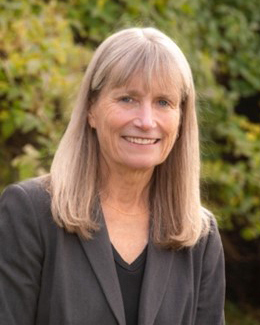Sandra T Davidge, PhD, FRSC, FCAHS
Sandra T Davidge, PhD, FRSC, FCAHS
Regular SRI Member

Professor
Faculty of Medicine & Dentistry
Obstetrics & Gynaecology Dept
Executive Director, WCHRI
Faculty of Medicine & Dentistry
Women and Children's Health Research Institute
University of Alberta
https://apps.ualberta.ca/directory/person/sdavidge
Career Journey of Dr. Sandra “Sandy” Davidge
Dr. Sandy Davidge received her Bachelor of Science degree from the University of Massachusetts, Master of Science degree from Washington State University and her PhD from the University of Vermont. She then continued her training as a postdoctoral fellow with Dr. Jim Roberts at the Magee Women’s Research Institute in Pittsburgh before she moved to Edmonton, Alberta, Canada with her husband and two young children in 1996 to begin her first faculty position at the University of Alberta. She is now a Distinguished University Professor and the Executive Director of the Women and Children’s Health Research Institute (WCHRI) at the University of Alberta. She has published over 250 scientific articles with her trainees and colleagues focused on understanding the pathophysiology pregnancy complications, such as preeclampsia and intrauterine growth restriction, in order to develop new therapies to improve pregnancy outcomes. Her work further explores strategies to prevent later-life cardiovascular disease that can arise in both women and offspring exposed to complicated pregnancies. This research has led to her being elected Fellow of the International Union of Physiological Sciences (IUPS), the Canadian Academy of Health Science and the Royal Society of Canada. Being a past President of SRI is one of the greatest honours in her research career.
Questions
1. What inspired you to choose reproductive sciences?
The cardiovascular adaptations that occur in pregnancy is fascinating to me and critically important for healthy pregnancy outcomes. I am passionate about the topic as complications of pregnancy (such as preeclampsia) have a significant impact on both maternal and offspring health.
2. Favorite part of your job?
Working with my team that is composed trainees of all stages (undergraduate and graduate students, postdoctoral fellows) and experienced staff (Research Associate and Technicians) as well as developing collaborations (and friendships) with colleagues from around the world.
3. How did you hear about SRI?
I heard about SRI from my mentor and PhD supervisor, Margaret McLaughlin, while I was working as her technician. My first SRI meeting was in 1990 where I gave an oral presentation from my abstract submitted while I was a technician prior to beginning my PhD studies.
4. What makes SRI your scientific home and how has it helped your career?
SRI has been my scientific home since the beginning of my training due to the excellence of the science and the members. The networking opportunities through SRI significantly enhanced not only my career projections but also for my trainees over the years.
5. What would you say to someone considering going into the reproductive sciences field?
Follow your passion. I personally find that a career in research focused on reproductive sciences is fascinating and rewarding as well as being an understudied area with much need for greater evidence for improving outcome
6. Favorite benefit of SRI?
The people - Networking, collaborations and friendships.